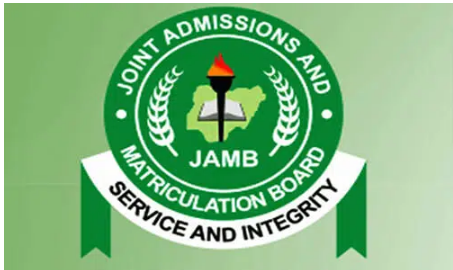Education
2022 JAMB Brochure & Syllabus [IBASS Latest & Original Copy]

-
2022 JAMB Brochure & Syllabus [IBASS Latest & Original Copy] can be accessed below.
Here at EKO HOT BLOG, you can access the JAMB Brochure & Syllabus: Download or View Online Joint Admissions and Matriculation Board (JAMB) Interactive e-Brochure and e-Syllabus System (JAMB IBASS) for Unified Tertiary Matriculation Examination (UTME and Direct Entry (DE) Students [2022/2023] Visit https://jamb.gov.ng/ibass.aspx for your e-brochure & e-syllabus]
The Joint Admission Matriculation Board, JAMB has created an Interactive Brochure and Syllabus System (JAMB IBASS) for all UTME and Direct Entry applicants.

Read Also: Candidates Below 18 Needn’t Provide Proof Of COVID-19 Vaccination – JAMB
All Prospective UTME and DE applicants are advised to get acquainted with the JAMB Brochure and Syllables online before purchasing the UTME and Direct Entry JAMB Registration Forms.
The Interactive Brochure and Syllabus System (JAMB IBASS) provides candidates with the various admission requirements needed from them from their prospective tertiary institutions.
All Candidates can access the JAMB Interactive Brochure and Syllabus System (JAMB IBASS) online via the link>>>https://jamb.gov.ng/ibass.
Follow the Respective Links below to Download the JAMB Brochure and Syllabus for Specific Subjects in PDF.
A. Download JAMB IBASS UTME and Direct Entry Complete Brochure in PDF
- To Download the Full JAMB UTME & DE e-Brochure in PDF click here.
OR
OR
B. Download JAMB IBASS UTME Complete Syllabus for all Subjects in PDF
OR
- Download JAMB Agriculture Syllabus in PDF
- Download JAMB Arabic Syllabus in PDF
- Download JAMB Art Syllabus in PDF
- Download JAMB Biology Syllabus in PDF
- Download JAMB Chemistry Syllabus in PDF
- Download JAMB Christian Religious Studies Syllabus in PDF
- Download JAMB Commerce Syllabus in PDF
- Download JAMB Economics Syllabus in DF
- Download JAMB French Syllabus in PDF
- Download JAMB Geography Syllabus in PDF
- Download JAMB Government Syllabus in PDF
- Download JAMB Hausa Syllabus in PDF
- Download JAMB History Syllabus in PDF
- Download JAMB Home Economics Syllabus in PDF
- Download JAMB Igbo Syllabus in PDF
- Download JAMB Islamic Studies in PDF
- Download JAMB Literature in English Syllabus in PDF
- Download JAMB Mathematics Syllabus in PDF
- Download JAMB Music Syllabus in PDF
- Download JAMB Physics Syllabus in PDF
- Download JAMB Principles of Accounts in PDF
- Download JAMB Use of English Syllabus in PDF
- Download JAMB Yoruba Syllabus in PDF
Also See: JAMB Registration Form [Instructions & Guidelines].
ABOUT JOINT ADMISSIONS AND MATRICULATION BOARD (JAMB)
The Joint Admissions and Matriculation Board was established by an Act of 1978, subsequently amended in 1989 and 1993. By the virtue of the Act, the Board is empowered to be responsible for them:
i) general control over the conduct of matriculation examinations into all Universities, Monotechnics, Polytechnics and Colleges of Education;
ii) appointment of examiners, moderators, invigilators, members of the subject panels and committees and other persons with respect to matriculation examinations;
iii) placement of suitably qualified candidates in the tertiary institutions in collaboration with those institutions.
In furtherance of these functions, the Board conducts a matriculation examination for candidates seeking admissions to tertiary institutions within the country. This examination is known as the Unified Tertiary Matriculation Examination (UTME).
ELIGIBILITY FOR THE EXAMINATION
Those eligible to sit the UTME are holders of the following qualifications or their equivalents:
i) the West African School Certificate (WASC)
ii) the Senior Secondary School Certificate (SSCE)
iii) the National Technical Certificate or the National Business Certificate (NTC/NBC)
iv) Teachers’ Grade II Certificate
Candidates who have sat or are scheduled to sit for examinations in any of these qualifications in the year of application may also sit for the UTME
STRUCTURE OF THE EXAMINATION
The UTME is conducted once a year in the computer based test mode. The test is a three-hour multiple-choice in four subjects, with a compulsory paper – the Use of English and three other subjects of a candidate’s choice. Prospective candidates are advised to seek the advice of their teachers, parents/guardians or career counselors in their choice of elective subjects for the UTME.
Candidates are advised to visit the JAMB practice test window on its website to familiarize themselves with features of the computer-based test at no extra cost.
ADMISSION REQUIREMENTS
Prospective candidates for the UTME are to note that for them to secure admissions into tertiary education programme, they have to:
- attain an appreciable standard of pass in the UTME in the relevant subjects;
- have credit passes in five relevant subjects in the appropriate WAEC/NECO
- SSCE/Teachers’ Grade II examination.
- The credit/merit passes in question should be attained at not more than two sittings.
- Normally, credit passes Mathematics and English Language are required for all tertiary education courses except where it is stated otherwise.
In addition to the general entry requirements specified above, candidates must meet any other specific entry. Candidates are therefore advised to consult the appropriate sections of the UTME/DE brochure for information about the specific entry requirements for different programmes. It is also important to note that admissions are subject to general guidelines enunciated from time to time by the proprietors of higher educational institutions. Such guidelines may set out admissions quotas or implementation principles which the Board and the institutions are expected to uphold.
BEWARE OF EXAMINATION MALPRACTICE
Increasingly, candidates, examination officials and other persons are yielding to the temptation to cheat in examinations.
Cheating (or aiding or abetting cheating) in examinations is a criminal act punishable by law. The Examination, Malpractices Decree 1999 provides penalties for persons convicted of examination malpractice.
The punishment provided includes imprisonment for 3-5 years or a fine of N50,000 or more, or both prison sentence and fine.
By provision of the decree, the following are considered criminal acts: Cheating, use of electronic device, impersonation, collusion with others with the intent to cheat or secure unfair advantage for self or for another, disturbance at examinations, misconduct in the course of an examination, failure to obey lawful orders of supervisors, proctors or agents of the examination body, forgery of result notification, breach of duty, conspiracy, aiding, multiple application, etc.
You May Also like: JAMB Introduces Two New Subjects To UTME
Click to watch our video of the week:
Advertise or Publish a Story on EkoHot Blog:
Kindly contact us at [email protected]. Breaking stories should be sent to the above email and substantiated with pictorial evidence.
Citizen journalists will receive a token as data incentive.
Call or Whatsapp: 0803 561 7233, 0703 414 5611













